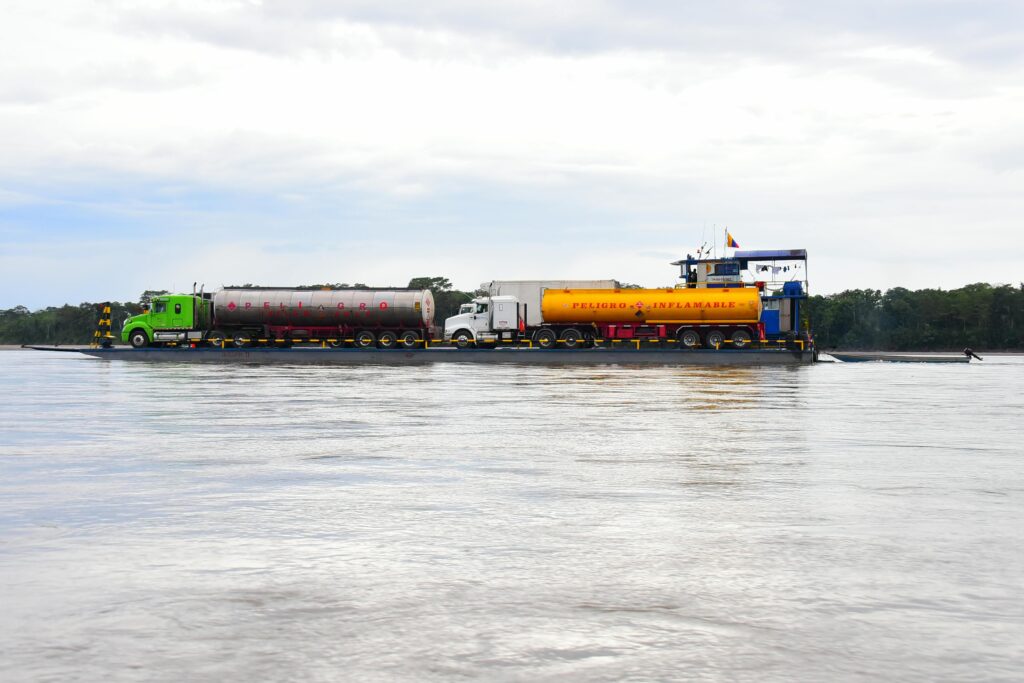Rolls-Royce Power Systems tests first high-speed marine engine running entirely on methanol, marking a step toward CO2-neutral shipping. Image Credit:Rolls Royce
Rolls-Royce Power Systems AG has achieved a major breakthrough by successfully testing the world’s first high-speed marine engine running entirely on methanol at their Friedrichshafen test facility. The milestone marks a significant step toward CO2-neutral shipping, with the new engine offering a fully sustainable alternative to traditional diesel propulsion.
In a move that could reshape the marine industry, Rolls-Royce Power Systems AG, in collaboration with Woodward L’Orange and WTZ Roßlau, has successfully demonstrated a high-speed engine operating purely on methanol, as part of the meOHmare research project. “This is a genuine world first,” said Dr. Jörg Stratmann, CEO of Rolls-Royce Power Systems AG. “To date, there is no other high-speed engine in this performance class that runs purely on methanol. We are investing specifically in future technologies to open up efficient ways for our customers to reduce CO2 emissions and further expand our leading role in sustainable propulsion systems.”
The milestone is part of Rolls-Royce’s broader strategy to develop climate-friendly propulsion technologies in line with its ‘lower carbon’ strategic pillar. According to meOHmare project reports, the collaboration, funded by the German Federal Ministry for Economic Affairs and Energy, combines expertise from engine design, injection systems, and technology research to create a CO2-neutral solution for maritime transport by 2025.
Methanol offers clear environmental advantages: it is CO2-neutral, clean, and safe, making it an attractive alternative to fossil fuels. However, it poses unique engineering challenges. Unlike diesel, methanol does not ignite spontaneously and requires completely redesigned injection systems and combustion processes. “We have fundamentally redesigned the combustion process, the turbocharging, and the engine control system – and even adapted our test bench infrastructure,” explained Dr. Johannes Kech, Head of Methanol Engine Development at Rolls-Royce. “Initial tests show that the engine is running smoothly – now it’s time for fine-tuning.”
READ ALSO: https://www.modernmechanics24.com/post/scientists-map-mosquito-cells-head-to-toe-first-time
The significance of this achievement extends beyond technical innovation. Denise Kurtulus, Senior Vice President Global Marine at Rolls-Royce, highlighted the industry implications: “With this successful test run, we are sending a clear signal: green methanol is a future-oriented fuel – and the technology for it is here. The single-fuel methanol engine is an attractive solution, especially for operators of ferries, yachts, or supply vessels who want to reduce their carbon footprint. The task now is to create the framework conditions for wider use.”
Currently, Rolls-Royce is also developing a dual-fuel concept capable of running on both methanol and diesel, acting as a bridging solution until green methanol becomes widely available. According to industry analysts, such dual-fuel systems are crucial for maintaining operational flexibility while reducing carbon emissions, particularly for ships operating on long routes where methanol supply infrastructure is still limited.
WATCH ALSO: https://www.modernmechanics24.com/post/lockheed-turns-black-hawk-into-pilotless-drone
The meOHmare project illustrates how strategic collaborations can accelerate the adoption of sustainable technologies in maritime transport. By combining Rolls-Royce’s propulsion expertise with Woodward L’Orange’s advanced injection systems and WTZ Roßlau’s research capabilities, the project is not only tackling technical hurdles but also laying the groundwork for a broader transition to climate-neutral shipping.
As global pressure mounts to reduce maritime emissions, innovations like the methanol-powered engine position Rolls-Royce as a frontrunner in sustainable marine solutions. While challenges remain, from scaling production to establishing fuel infrastructure, the successful test demonstrates that cleaner alternatives are no longer theoretical—they are ready to power the next generation of ships.
With this breakthrough, Rolls-Royce sends a strong signal to shipowners and operators worldwide: sustainable marine propulsion is achievable today, and methanol could be the fuel of tomorrow.














